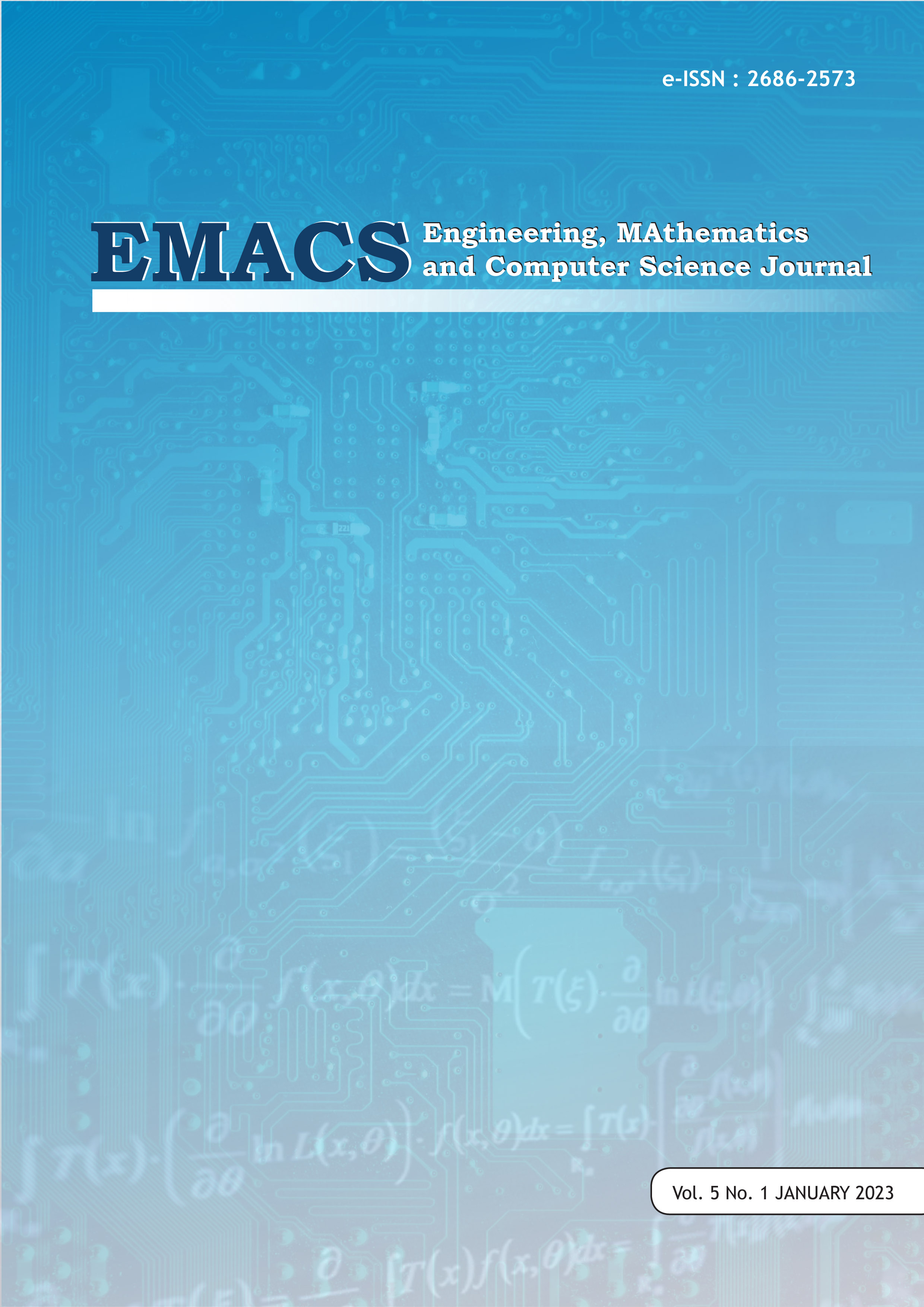Improve Learning Programming through Small Private Online Course and Virtual IDE
DOI:
https://doi.org/10.21512/emacsjournal.v5i1.9234Keywords:
Virtual IDE, LMS, SPOC, Learning Management System, Small Private Online CourseAbstract
In learning programming languages ​​there are some technical problems such as the difficulty of installing IDE applications and tend to be heavy, cannot be used on various operating system platforms and there are no programming tutorials. By providing online and open learning content for certain organizations or often called SPOC (Small Private Online Course) and Virtual IDE to support SPOC, it can help students to improve programming skills. The purpose of this research is to create a SPOC LMS that has a Virtual IDE as a learning support. The Quantitative Method was used as a research method in this study to make a conclusion from the experimental results. The results of this study concluded that LMS SPOC and Virtual IDE can help students understand language programming.
References
Alhazzani, N. (2020). MOOC’s impact on higher education. Social Sciences & Humanities Open, 100030.
An, S., Li, W., Hu, J., Ma, L., & Xu, J. (2017). Research on the reform of flipped classroom in computer science of university based on SPOC. 12th International Conference on Computer Science and Education (ICCSE), 621-625.
Bali, S., & Liu, M. C. (2018). Students' perceptions toward online learning and face-to-face learning courses. Journal of Physics: Conference Series.
Muna, S. H., Haider, A. R., & Daniel, C. N. (2005). e-Learning Based on Context Oriented Semantic Web. Journal of Computer Science, 1(4), 500-504. doi:https://doi.org/10.3844/jcssp.2005.500.504
Psathas, G., Katsanos, C., Tsiatsos, T., Tegos, S., & Demetriadis, S. (2020). MOOCs in Higher Education: A Study on the Learning Effectiveness, Quality and Usability of a SPOC on Introduction to Programming. Pan-Hellenic Conference on Informatics, 46-49.
Rodríguez-del-Pino, J. C., Hernández-Figueroa, Z. J., Domínguez, J. D., & Skalka, J. (2022). Virtual Programming Lab for Moodle: Automatic Program Assessment in a First-year University Course. Microlearning , 195–206.
Ruiz-Palmero, J., Fernández-Lacorte, J.-M., Sánchez-Rivas, E., & Colomo-Magaña, E. (2020). The implementation of Small Private Online Courses (SPOC) as a new approach to education. International Journal of Educational Technology in Higher Education, 17, 27. doi:https://doi.org/10.1186/s41239-020-00206-1
Wu, Y., Wu, X., Chen, J., & Zhao, X. (2018). Exploration of MOOC+SPOC Mixed Teaching Mode in College Computer Foundation Course. 13th International Conference on Computer Science & Education (ICCSE), 1-3.
Zhou, S., He, Z., Xiong, N., & Liu, X. (2019). Research and Application of Mixed Teaching Method of Python Programming Based on SPOC. 2nd International Conference on Information Systems and Computer Aided Education (ICISCAE), 189-193.
Downloads
Published
How to Cite
Issue
Section
License
Copyright (c) 2023 Engineering, MAthematics and Computer Science (EMACS) Journal

This work is licensed under a Creative Commons Attribution-ShareAlike 4.0 International License.
Authors who publish with this journal agree to the following terms:
- Authors retain copyright and grant the journal right of first publication with the work simultaneously licensed under a Creative Commons Attribution License - Share Alike that allows others to share the work with an acknowledgment of the work's authorship and initial publication in this journal.
- Authors are able to enter into separate, additional contractual arrangements for the non-exclusive distribution of the journal's published version of the work (e.g., post it to an institutional repository or publish it in a book), with an acknowledgment of its initial publication in this journal.
- Authors are permitted and encouraged to post their work online (e.g., in institutional repositories or on their website) prior to and during the submission process, as it can lead to productive exchanges, as well as earlier and greater citation of published work.
USER RIGHTS
All articles published Open Access will be immediately and permanently free for everyone to read and download. We are continuously working with our author communities to select the best choice of license options, currently being defined for this journal as follows: Creative Commons Attribution-Share Alike (CC BY-SA)





